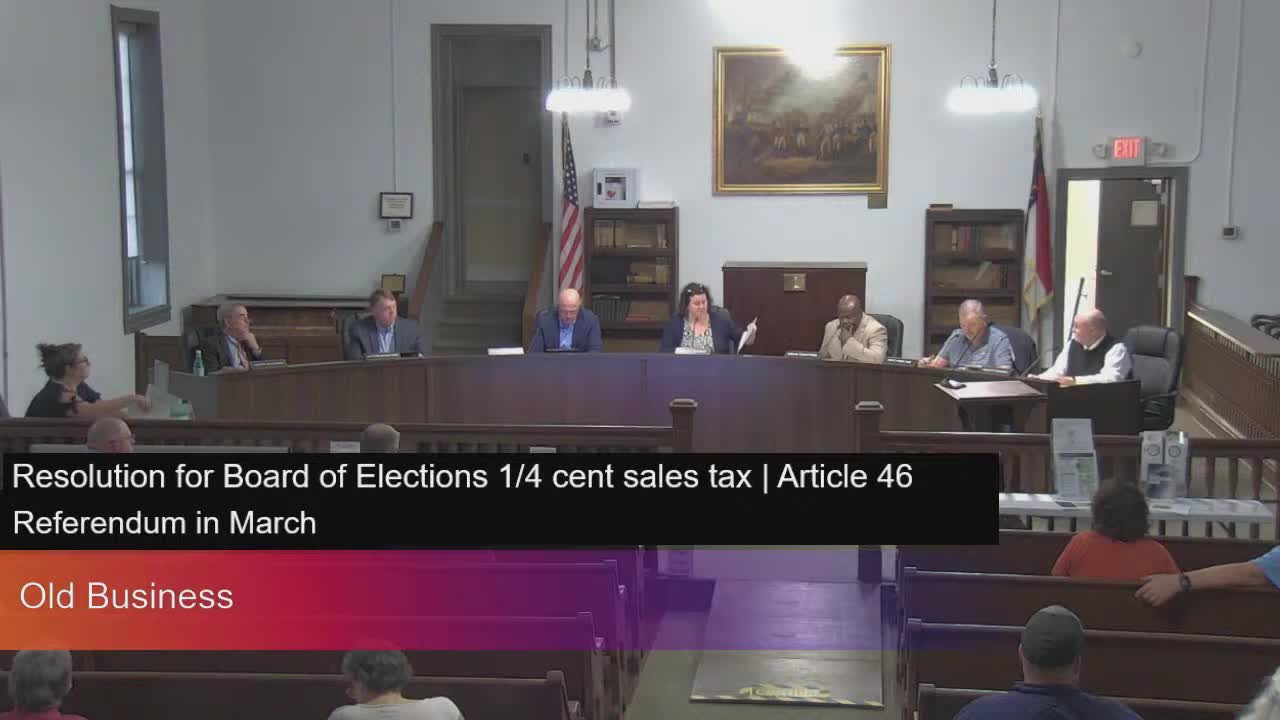Commissioners vote 4-1 to put quarter-cent sales-tax referendum on March ballot to fund food programs
Get AI-powered insights, summaries, and transcripts
Subscribe
Summary
The Gates County Board of Commissioners voted 4–1 to ask the county Board of Elections to place a quarter-percent local sales and use tax (Article 46) on the March 3, 2026 primary ballot.
The Gates County Board of Commissioners voted 4–1 to ask the county Board of Elections to place a quarter-percent local sales and use tax (Article 46) on the March 3, 2026 primary ballot.
The resolution, which the board approved after discussion, asks the Board of Elections to present the yes/no question in the exact form required by state law for a local-option sales tax. If voters approve the measure, the county would levy an additional 0.25 percent sales tax and retain those revenues for local use, county officials said.
Why it matters: Commissioners framed the referendum as a funding source to support the board’s child nutrition work and other food-security programs. Backers told the board the tax would help ensure breakfast and lunch for students and allow excess funds to support local food ministries.
Arguments presented - County Manager Scott Sauer told the board the referendum would allow Gates County to keep revenue currently collected at the state level, saying in part: "We're not asking for anybody to pay any more sales taxes. We're just asking for Gates County to vote on, hey, folks in Raleigh that we send our money to, we would like to have control of our own money, and please let us have it back. Right. Because we think we can spend it wiser than you can." (Scott Sauer, county manager) - Commissioner Jonathan Craddock opposed the measure in discussion, saying school-finance accountability should be addressed before asking residents to approve additional tax and adding that the wording "says to levy a local sales tax" and could be perceived as a tax increase.
Use of revenue: Commissioners said during debate that the board intends to direct revenues first to the child nutrition program for the county’s schools; any surplus would be discussed for other local food-security needs, such as backpack programs or food-distribution ministries.
Vote: The board approved the resolution by a 4–1 vote. The board’s action will send the referendum question to the Gates County Board of Elections for placement on the March 3, 2026 primary ballot. Commissioners did not adopt implementing language or a spending ordinance at the meeting; the resolution only asks elections staff to place the question before voters.
Ending: The board’s approval starts the next phase — voter education and outreach leading up to the March ballot. County staff said they will prepare informational materials to explain the referendum and its proposed use for child nutrition and food-security programs.
